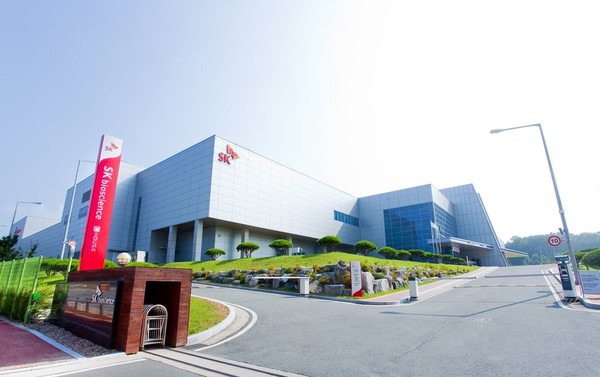SK Bioscience, which once made a strong stock market debut in March last year, is now struggling with sliding price of its shares on Kospi.
Analysts said that to boost the stock price struggling to surpass 100,000 won ($77.4), the company has to present investors with detailed achievements from the vaccine business.

As of 11:45 a.m. on Monday, shares of SK Bioscience fell 4.4 percent to 99,400 won, considered too low compared to 362,000 won, a 52-week high recorded on Aug. 17 last year.
The poor performance of SK Bioscience stocks is attributed to the delay in the commercialization of a Covid-19 vaccine and the overall jittery investor sentiment amid geopolitical issues and inflation worries.
At a news conference early this year, SK Bioscience was confident about commercializing and supplying its Covid-19 vaccine.
Ahn Jae-yong, CEO of SK Bioscience, said at the news conference that 36 percent of the world’s population was still unvaccinated, adding that the company was actively studying a booster shot.
“By the time Korean people get the fourth Covid-19 vaccination, our vaccine will become a ‘weapon’ to protect Korean people’s health,” Ahn said.
However, analysts gave a rather dim outlook for SK Bioscience shares.
On Thursday, Shinhan Investment released an analyst report and lowered the target price of SK Bioscience by 33 percent to 121,000 won.
Shinhan Investment noted that SK Bioscience must have performed well in the second quarter. As a result, the brokerage predicted that the company’s second-quarter sales and operating profit were estimated to be 140.4 billion won and 64.3 billion won, respectively, up 61 percent and 171 percent quarter-to-quarter. In addition, the report said that the company could improve earnings because it resolved the delay in quality assurance of CDMO for Novavax’s Covid-19 vaccine.
However, Shinhan Investment lowered the sales outlook for SK Bioscience's Covid-19 vaccine SKYCovione (pipeline name: GBP510), which is about to arrive in the market because countries have excess stocks of existing Covid-19 vaccines and the lower rate of Covid-19 booster shot vaccination in Korea.
Also, SKYCovione may not sell as much as the company had expected, both at home and abroad.
The first and second dose vaccination rates in Korea were recorded at 87.4 percent and 86.5 percent, respectively. However, the third dose vaccination rate was 64.6 percent, and for the fourth dose, only 8.3 percent, Shinhan Investment said.
The report predicted that the total sales of Covid-19 vaccine developers will also plummet from $63.1 billion in 2022 to $33.6 billion in 2023, to $20.1 billion in 2024.
Shinhan Investment estimated SKYCovione’s value at 1.25 trillion won, which is lower than a 1.98 trillion won estimate for SKYpack, a 21-valent pneumococcal vaccine candidate that SK Bioscience is jointly developing with Sanofi.
“For a rebound in the stock price, the company needs to show high growth in vaccine sales or specific results of facility expansion and entry into new businesses,” the report added.
Vaccine industry officials said it became more difficult to expect rapid revenue growth from Covid-19 vaccines.
“We will have to see, but the Covid-19 vaccine market has indeed shrunk,” an official at a vaccine maker said.
In the worst scenario, developing a Covid-19 vaccine could even hamper a company’s growth, another official said.
“SK Bioscience must be frustrated because Covid-19 vaccine development has become like a government project. It can’t give up in the middle of the development,” an official at a biopharmaceutical firm said. “It is also uncertain how much SK Bioscience’s vaccine will be competitive, compared to Pfizer or Moderna vaccine, in other countries,” he added.

